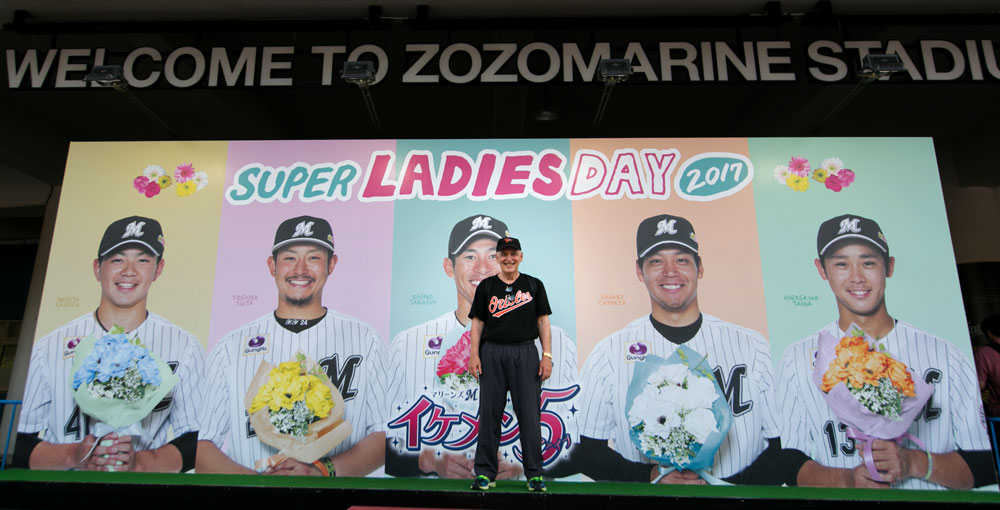HDFS 3042: Baseball and Society: Politics, Economics, Race, and Gender
HDFS 3042: Baseball and Society: Politics, Economics, Race, and Gender

The Instructor:
Steven Wisensale remembers listening to the 1952 Republican National Convention on the radio. He was 7 years old. “Growing up, I always had an interest in politics,” says the professor of public policy in UConn's Department of Human Development and Family Studies. “My parents engaged my interest at an early age.”
The '52 convention was where Dwight D. Eisenhower became the GOP presidential candidate on his way to winning the White House. That same year, the New York Yankees defeated the Brooklyn Dodgers in seven games to capture their fourth straight World Series. Baseball was no less a presence on the Wisensale household radio.
The diamond interest of young Steven Wisensale ramped up in 1954, when the St. Louis Browns moved to Baltimore, not far from where his family lived in southeastern Pennsylvania. Five decades later, he remains a devout fan of the Baltimore Orioles.
For many years, as he was pursuing his studies and establishing himself in the world of academia, Wisensale kept his interests separate. His scholarly interest was in family policy, particularly as it relates to aging and family leave. His baseball fandom was curtained off for his leisure time.
But that changed once he was promoted to full professor. “I felt like I had more freedom,”says Wisensale, “and as I began to think about what I wanted to do inside the classroom, I decided I wanted to teach a course on baseball.”
Wisensale had heard of baseball-related courses at around 20 other universities. Harvard and Tufts offered courses that were quantitative in nature. Stanford and San Francisco State had courses that focused more on baseball in society, which was what Wisensale was after. “I wanted to delve into history,” he says.

Class Description:
Baseball and Society: Politics, Economics, Race and Gender explores the connections between historical events and the history of baseball. A discussion of labor relations, for instance, digs into the evolving business of baseball as it runs parallel to the ever-changing circumstances surrounding the U.S. workforce in general.
“I hit the Curt Flood story pretty hard,” says Wisensale, referring to the ballplayer who in 1969 refused to abide by a trade, instigating a contractual challenge that made it all the way to the U.S. Supreme Court and led to player free agency throughout the game. The drawing of historical links goes all the way back to the origins of baseball.
“A lot of students would prefer that we get right to the current day or recent history,” says Wisensale, “but they're surprised by how rich the dead-ball era was.” It was the time of World War I, which is when baseball became directly connected with its time in history.
“When the war broke out,” says Wisensale, “baseball owners were nervous: Do I want my right fielder being hit by a landmine? They had to figure out how to protect their assets.” So the owners cut a deal under which players could remain in baseball as long as, during the offseason, they worked in a defense plant or in some way contributed to the wartime effort.
“This is going to be fluff,” was the concern Wisensale heard when designing the course for its 2012 debut. He understood the reluctance, so he took pains to design a curriculum about baseball that wouldn't be a softball.
Wisensale puts prospective students through a screening process in which they answer questions about their goals for the course. They also must write an essay on what baseball means to them. And Wisensale checks out every applicant; typically there are 180 to 200 for the 50 spots.
“I don't want slackers in the class,” he says.

Wisensale's Teaching Style:
“Baseball news! Anybody have any baseball news?”
This is how Wisensale begins each class. A discussion of current events takes up just the first 5 to 10 minutes of class. Then the professor digs in at the plate and starts swinging. The connections he draws aren't always obvious. An example: baseball's steroids scandal.
“Maybe I'm the only one who thinks this way, but I believe that what the ballplayers did is the same as what Bernie Madoff did,” he says, referring to the financial advisor who cheated investors (including the New York Mets ownership) with a Ponzi scheme.
“They all basically conned the system and made a lot of money, with so-called regulators not regulating. There were so many people making so much money within a corrupt system ”” why police it?”
The challenge in teaching this course, for Wisensale, stems from the diverse student enrollment. “Students come for different reasons,” he says. There are accounting students “who want to work for Billy Bean” and understand all the sabermetrics ”” or statistical analysis ”” but may have no interest in history. Then there are the history majors, who are deeply interested in the origins and development of the sport. And journalism students “who think in terms of writing stories about current events,” says Wisensale. “I try to get them to read Roger Angell's stuff and John Updike's essay about Ted Williams's last game, things like that.”
Why We Want to Take It Ourselves:
Three strikes and four balls. Nine innings, each with three outs. Baseball has a rhythm to it, one that hearkens back to what we tend to reminisce about as simpler times. But were they really?
Baseball and Society delves into some dramatic twists and turns that the game and its surrounding culture shared. Race comes up in discussions of the Negro Leagues and Jackie Robinson breaking the color barrier.
Gender is at center stage when the All-American Girls Professional Baseball League comes on the scene during World War II. And then there's the steroid era. “That last item generates the most discussion in class,” says Wisensale.
If putting historical events into context isn't enough of a draw, how about the opportunity to have your own baseball card? During the enrollment process, Wisensale instructs students to create their card. “It can be a childhood dream come true for some,” he said.
That includes the professor himself. He creates a Wisensale card before each semester, a reminder that for him this course represents a second wind after many years of teaching and writing.
“This really has energized me,” he says. “It has taken me back to my youth.”
Who wouldn't want to be in a classroom with a professor who feels that way?
””Jeff Wagenheim


Leave a Reply